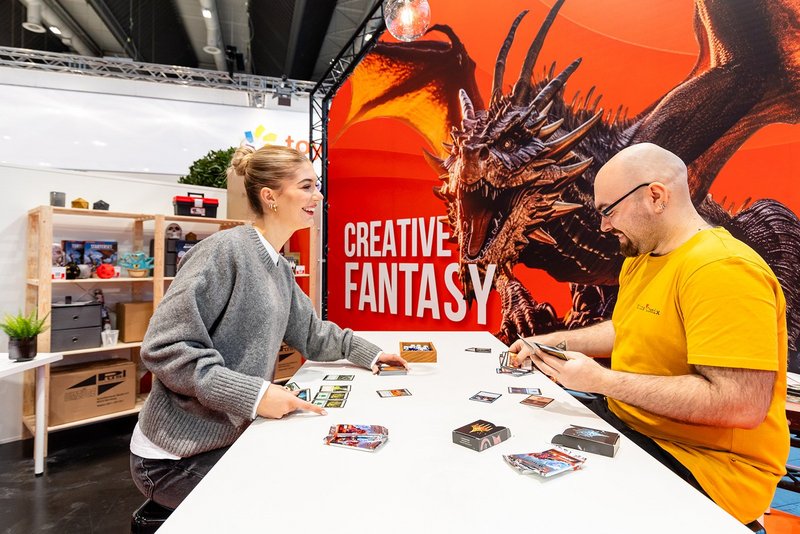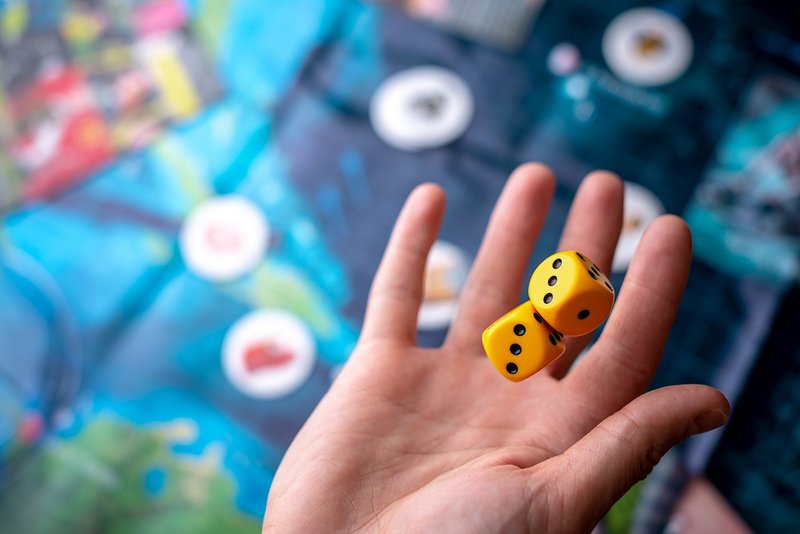
The Mensenkamp collection in Nuremberg: Splendour and history
Exhibition by the German Games Archive Nuremberg at the Toy Museum
by Thomas Tjiang
The world of toys keeps creating the desire to challenge fortune or trial a crafty tactic. And with time, it also offers a view into totally different dimensions: The craft needed to create a game; the proximity to technical innovation; or a reflection of contemporary history by the individual game. The Nuremberg House of Games presents such an excerpt with the Mensenkamp games collection on display at the Toy Museum. The exhibition is aptly titled “Treasures in boxes”.
Variety well packaged

“The Mensenkamp games collection is unique”, Stefanie Kuschill is sure of that. A research assistant at the Nuremberg House of Games, she herself is in awe of the exhibits. “At the Toy Museum we demonstrate what board games can look like.” She stops in front of large-size boxes of glorious design. Not only do they serve to store pewter figures, dice or play money, but at times they even serve as the board for a game. The silvery puzzles made from paper are equally fascinating. The delicate works are most likely from 1815 and depict romantic motifs. And it must have taken a very calm hand to compose a complete scene from the moulded figures.
That proved to be a stroke of luck for the German Games Archive Nuremberg.

The 52 exhibits on display are a small excerpt from the collection. The private collector Dieter Mensenkamp, born in Detmold, Germany in 1944, amassed over 5,000 table games. They originate predominantly from the 19th and early 20th century. Three years ago, he decided to donate his treasures to the German Games Archive of the City of Nuremberg. “These past years I have been worrying about what would happen with my collection”, he recalls. He is now relieved to share that everything will go to the House of Games along with their by now 40,000 board and table games. “This is how I wanted to pass on my knowledge.” For the games archive, this is a genuine stroke of luck.
“However, most of the collection is still packed in boxes and will be inventoried game for game”, Stefanie Kuschill says. Still, the House of Games wanted to express their gratitude to the passionate collector with this first exhibition. The comprehensive collection of historic games from the German-speaking territory encompasses the history of the game and of playing. At the same time, it includes a clear connection with Nuremberg as a region associated with games. Roughly a quarter of the items originate from the production of former game publishers like Klee, Spear, and Bing. They have lastingly defined Nuremberg’s reputation as a game production hot spot.
Contemporary history in games

Mensenkamp himself is not so much someone who plays but who was always more fascinated by the lovingly crafted games. In the mid-1980s, he discovered a game called The Zoo in an antique shop and was thrilled about the design. “That triggered my addiction for collecting games.” At the same time, the contemporary history was a priority for him which is reflected in the ideas behind the games. For example, electricity or the radio found their way into the world of games very fast.
Stephanie Kuschill emphasises the relevance of board games as a cultural and historical testimony. “The Little Housewife” reflects former role models from the Wilhelminian era and their ideals.
Travelling and mobility are also two themes that are well represented. For example, the exhibition includes a running game called The Lost Travel Ticket (Die verlorene Fahrkarte) which interprets difficulties in travelling during the German Empire. The spirit of adventure and wanderlust are also explored in games like Reisespiel durch Franken (The Travel Game through Franconia), Der kühne Ozeanflieger (The bold transatlantic aviator) or Reise durch die Welt (Travels around the world).
Treasures in boxes at the Toy Museum Nuremburg
For more information and details about the fringe programme accompanying the exhibition of Dieter Mensenkamp’s collection, go to the website of the House of Games:
To the website of the exhibition
Online exhibition on the Mensenkamp collection at Google Arts & Culture
About the author
Thomas Tjiang is business and local journalist and communication consultant. Since the start of the 1990s, he has worked for all types of media, such as daily and monthly press, the radio, TV, news agencies and on-line editorial offices. The freelance expert for literature and communication science has lived in Nuremberg for 30 years.




